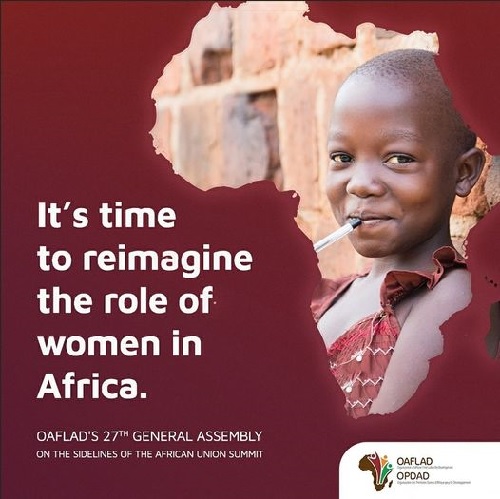
BY ELIZABETH MENGISTU
Several decades have already elapsed since the issue of gender equality has become a global agenda. The 17 Sustainable Development Goals adopted by UN members also set a target to achieve gender equality and empower women and girls by 2030 understanding the critical significance of curbing gender inequalities, and the positive impacts that women and girls can bring about in global socioeconomic development.
Ironically, even after a century, many women are destined to stay at home and still suffer from gender inequality locked out of economic participation and opportunities. According to the estimation by the World Economic Forum (WEF-2021), carried out based on the 2020 trends, the world is now going backwards regarding gender equality.
“At the present rate of progress, it could take us nearly 100 years to close the gender gap,” it says. As to the study, COVID-19 pandemic has raised new barriers to building inclusive and prosperous economies and societies. Pre-existing gender gaps have amplified the crisis asymmetrically between men and women, even as women have been at the frontlines of managing the crisis as essential workers.
In fact, over the decades, several promising changes are seen at global level. Many women have come to the leadership ladder, and many more can join high-paying jobs, register glittering success in areas they engaged in; once alleged to be men’s businesses.
However, the progress, in black and white, is sluggish that demands a lot of courage to fight biases, commitment to beat the challenges and; calls for accelerated and urgent actions from all. Recently, the 27th Ordinary General Assembly of the African First Ladies for Development (OAFLAD), which was established by Africa’s First Ladies and strives to be a united voice for Africa’s most susceptible citizens; women and children, was held here in Addis Ababa at the African Union Commission (AUC) Hall.
The Assembly, which was conducted on the sidelines of the 36th Summit of the African Union, discussed a number of issues regarding African women and girls and on ways to unlock women’s and girls’ potential to drive social and economic progress in Africa. In her opening remark, First Lady Zinash Tayachew said that, empowering women and closing the gaps in gender equality is a key to improving the lives of women and girls in the continent.
To this effect, according to the First Lady, more energy should be applied and high levels of engagement should be exerted from respective countries to bring about substantial change, narrow the gap in gender equality and improve the lives of women and girls thereby accelerating the continent’s economy.
First Lady Zinash also called for swift, concerted efforts and firm focus on gender equality to close gaps gender. At the Assembly, matters related to climate change, HIV and AIDS, the prevention of HIV transmission from mother to child, child health, cervical cancer, awareness- early diagnosis, and treatment of the cancer, and the like challenges discussed thoroughly. Most importantly, the need to collaborate with concerned bodies, bold action and dedication was emphasized to close the gap. The progress that has been made over the past 20 years through the continued engagement of African First Ladies was also hailed.
First Ladies of the continent also reflected the energy applied to empower women economically within their respective countries, shared their experiences and views to participants. They also emphasized on the need for continued collaboration and collective action with all stakeholders, particularly in strengthening women’s role in economic development and mitigating the effects of climate change.
This year’s OAFLAD’s Assembly theme was “Closing gaps in gender equity,” to drive social and economic progress in Africa. At the Session, including First Lady Zinash Tayachew and the OAFLAD secretariat; first ladies of Africa, Commissioner for Health, Humanitarian Affairs and Social Development, African Union and development partners; Representatives of UN agencies; the private sector; high-level government officials, donors and members of civil society took part.
The Organization of African First Ladies for Development (OAFLAD) is an advocacy organization where First Ladies of Africa seek to leverage their unique position to advocate for policies that make health services accessible and laws that boost women and youth empowerment.
First Ladies of Africa reinforce favorable policies and programs through advocacy, resource mobilization and development of partnerships with all stakeholders at all levels. First Ladies engage in various community-level activities to sensitize communities and create awareness on health risks and policies, it was learnt.
THE ETHIOPIAN HERALD TUESDAY 21 FEBRUARY 2023





